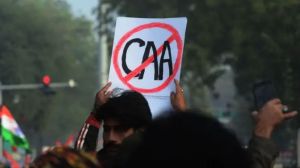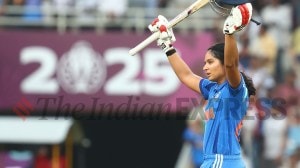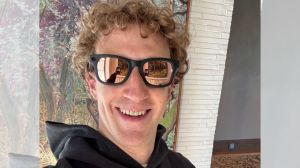Proposed Worli-Bandra sealink gets brickbats
MUMBAI, AUGUST 30: Transport planners have criticised the MSRDC's proposed Worli-Bandra sealink as supporting motor cars and examples of ...

MUMBAI, AUGUST 30: Transport planners have criticised the MSRDC’s proposed Worli-Bandra sealink as supporting motor cars and examples of partial solutions. The benefits of the project could be nullified if the government failed to sanction the second phase between Worli and Nariman Point.
Speaking at a meeting held on Monday evening to discuss the proposed 1.5- km-long Rs 1500 crore sealink due to be completed by 2002, transport planner Dr Patankar felt that the sealink was an example of lopsided priorities for the transport sector as it unabashedly encouraged private cars above public transport.
“So much money is being spent on private vehicles at the cost of public transport. India’s present system must change and the automobile can no longer remain the focus of the urban transport system,” he said. He explained that while private vehicles had an hourly carrying capacity of 4000 persons, public transport including suburban trains could crry 45,000 persons.
The panelists, who included Inspector General of Police PS Pasricha, journalist Darryl D’Monte and INTACH convenor Dev Mehta, were part of a public discussion on the project organised by the Indian Heritage Society (IHS), the Confederation of Indian Industry (CII) and the Nehru Centre.
Facing the queries was Maharashtra State Road Development Corporation (MSRDC) Managing Director R C Sinha.
“This is only a partial solution and the city will be stuck if we don’t get environment clearance for the section between Worli and Nariman Point,” said Dev Mehta, state convenor of INTACH. He said that the city needed a ring road on the east and west, but while the road in the east had been stalled by the Mumbai Port Trust (MPT), the West Island Freeway was incomplete.
As per MSRDC projections, the eight-lane freeway will ferry people between Worli and Bandra in ten minutes as against the existing one hour. According to transport expert Dr Pasricha, this would initially result in a fall in traffic on the Mahim causeway and then an increase in vehicles there after this road cleared out.
“The biggest worry is what will happen to the roads south of the freeway, the situation could worsen beyond redemption,” Pasricha said, adding that unless there was an east-west freeway system, the sealink would have its limitations.
Defending the project, MSRDC’s Managing Director R C Sinha said that the project would substantially improve the air quality of Mumbai city and would save three litres of petrol per vehicle. Two of its eight lanes would be reserved exclusively for buses.
“A partial solution is better than no solution at all,” Sinha said adding that the government had already prepared plans for the 2-km long Haji Ali-Tardeo viaduct to be built in case approval for the Worli-Nariman Point link did not materialise.



- 01
- 02
- 03
- 04
- 05




























